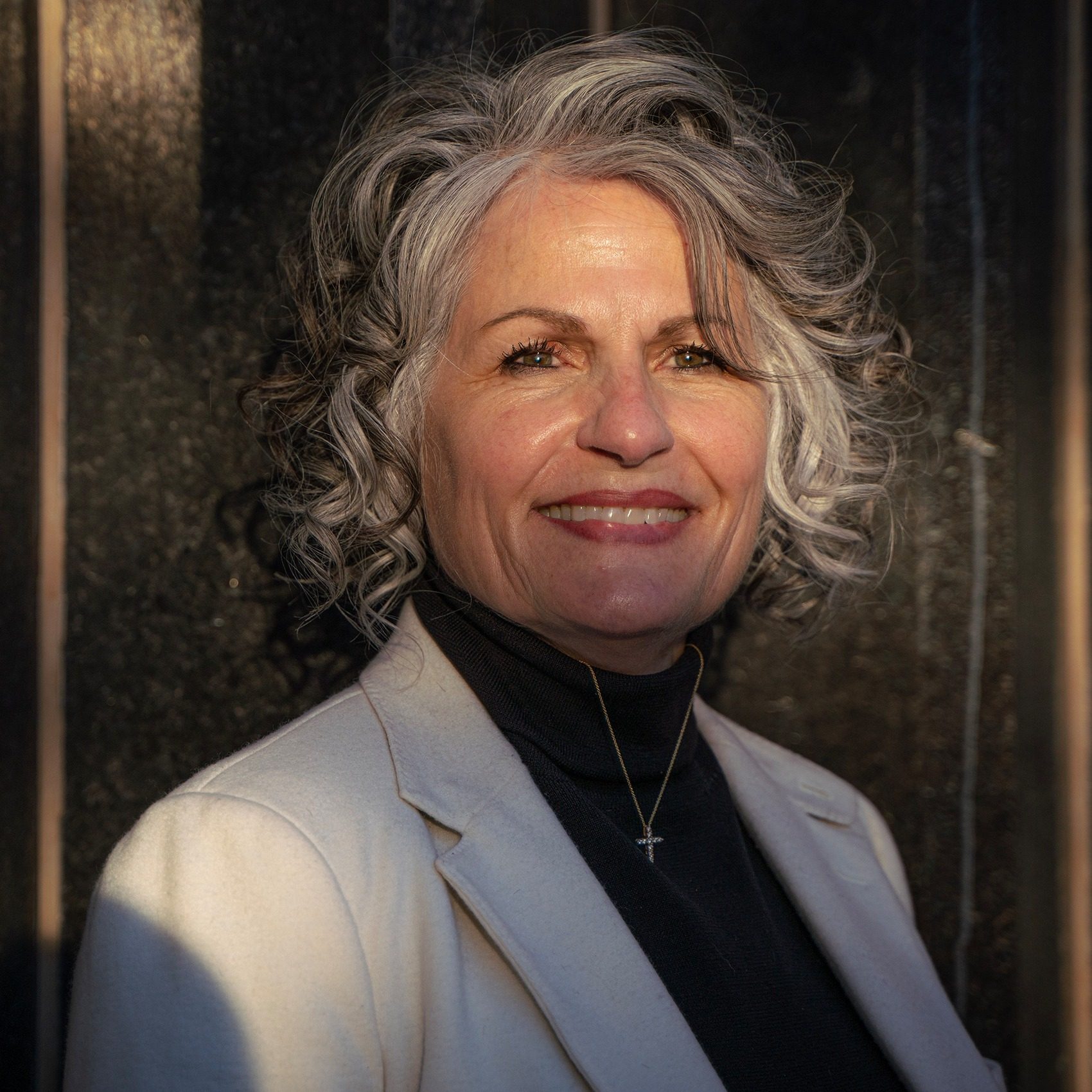Oklahoma DA Candidate Runs on Dropping Charges Against Officers Who Killed 15-Year-Old
Oklahoma County, the largest in the state, will choose a new top prosecutor for the first time since 2007. A conservative firebrand seeking the job promises to "support the police, not persecute them."
| October 24, 2022

This article was produced as a collaboration between Bolts and The Frontier
Oklahoma City police are regularly in the spotlight over police shootings, having shot at least 20 people in the last two years, killing at least 41 people since 2015. But these shootings rarely yield accountability, and very few police officers have faced criminal charges.
Oklahoma County District Attorney David Prater broke that pattern in 2021 when he charged five officers with first-degree manslaughter for killing 15-year-old Stavian Rodriguez outside a convenience store. Rodriguez had allegedly tried to rob the store before police intervened and surrounded the building. When Rodriguez exited, he raised his hands in the air, then dropped his handgun. He then reached for his back pocket, which held a cell phone. He was shot more than a dozen times by five officers and died at a local hospital later that night.
But Prater’s impending retirement, which will bring a new top prosecutor to the state’s largest county for the first time since 2007, is set to reshuffle both the DA’s office and its relationship with local law enforcement in this county of nearly 800,000.
Republican nominee Kevin Calvey, in announcing his run for DA last year, said he would “support the police, not persecute them,” and vowed that same day to drop the charges Prater had filed over Rodriguez’s death against the Oklahoma City officers. He told The Frontier and Bolts he had not looked at the case beyond seeing news reports that the Oklahoma City Police Department investigated the shooting and found it was justified.
“I would have shot him myself,” he said during a primary forum last year.
During another debate this month, Democratic nominee Vicki Behenna accused Calvey of pandering to law enforcement when he vowed to drop the manslaughter charges against the five officers. Calvey responded by accusing Behenna of pandering “to those anti-police people.”
The candidates
Kevin Calvey is no stranger to controversy. Known as one of the most conservative lawmakers in the state House during his twelve years as a lawmaker, he threatened to set himself on fire in 2015 over a bill that proposed a pay raise to state Supreme Court justices. Calvey said the court wasn’t doing enough to prevent women in Oklahoma from receiving an abortion.
“If I weren’t a Christian and didn’t have a prohibition against suicide, I’d walk across the street and douse myself in gasoline and set myself on fire,” he said, pumping his fist angrily during a debate on the House floor.
After joining the Oklahoma County commision, Calvey voted in 2020 in favor of sending more than $30 million in federal coronavirus relief funds to the county jail instead of spending it on local relief funds, a vote that sparked anger as it was rushed before a commissioner who opposed the measure could even sit down.
Earlier this year, the Oklahoma State Bureau of Investigation announced it was investigating some of Calvey’s campaign expenditures. Prater told News9 that employees from the State Auditor’s Office alleged that Calvey had misused public money in his campaign. Calvey denied the allegation in a press conference he staged directly outside Prater’s office, and at a debate earlier this month proclaimed he had been cleared. The OSBI later said the investigation is ongoing.
This history aside, Calvey has numbers in his favor. Oklahoma County is the state’s most purple metro area, and increasingly competitive—it voted for Donald Trump by one percentage point in the 2020 presidential race—but it still leans Republican. And in a state where every county has sided with the GOP’s presidential candidate on election day since 2004, and the state Legislature is heavily Republican, having an R next to your name goes a long way.
But Prater himself is a Democrat, and Behenna is intent on testing her party’s local strength.
Sitting in an office overlooking Oklahoma City from the 30th floor of her downtown office building, she looks and sounds like a focused, experienced attorney.
Behenna is a former a federal prosecutor, who served on the team that prosecuted Oklahoma City bomber Timothy McVeigh. She has also worked as a criminal defense attorney; she says she worked with the Innocence Project after she noticed “mistakes we made on the DA side at times.”
It’s that experience, she says, that makes her the perfect candidate to succeed David Prater as Oklahoma County’s DA. And she told The Frontier and Bolts that she entered the race in part because of the contrast with her opponent.

“When I saw (Calvey) was running, I was concerned,” she said. “It’s just not a job for a career politician or a lobbyist, it’s a job for someone with experience, who understands how the system works. I’ve been in this my whole career, I know what it’s about and what the DA does.”
Calvey rejects that this is the right lens to judge a DA.
“Experience is important, but let’s look at the right kind of experience,” Calvey told The Frontier and Bolts. “What does this job entail? How many cases is the district attorney himself or herself actually prosecuting? In an urban DA office, it’s virtually none.”
Calvey compared the role to “an administrative position” and said his role as county commissioner provided him with the experience he needs to manage the DA’s office.
“What the DA does in a large urban office is work with stakeholders, law enforcement and lawmakers,” he said. “And I know all of them.”
Calvey already convinced Republican primary voters of this argument. In the August primary, he defeated Gayland Geiger, a 22-year veteran of the DA’s office who worked under Prater, by more than 20 percentage points.
Relationship with law enforcement
Calvey has centered his campaign on criticizing Prater’s record. He described the current office’s relationship with law enforcement, particularly the Oklahoma City Police Department, as “poisonous.” He told The Frontier and Bolts that he believed the “No. 1 problem” between the DA’s office and police is the “wrongful prosecution of police officers.”
“So that needs to be repaired,” he said. “The reality is the current DA does not work well with others. There’s a definite need for change and reform there.”
Denouncing the prosecutions over Rodriguez’s shooting have been a campaign refrain for Calvey. He referred to encounters between police and civilians as “combat situations,” implying that Prater does not understand the hardship police officers face.
But Calvey points to another case that he believes exemplifies Prater’s “bullying nature”, and this is a very different case where the DA leaned into “law and order” politics.
Julius Jones, a prisoner on death row, became a national cause celebre in 2020 as he maintained his innocence and neared his execution date. Celebrities and professional athletes were rallying to his cause, asking Governor Kevin Stitt to release him from prison.
Jones appeared before the Pardon and Parole Board twice to ask for leniency. During that process, Prater empaneled a grand jury to investigate some Pardon and Parole Board members, raising alarms among his critics that he was inappropriately pressuring the board to deny Jones clemency. He also sued the Pardon and Parole Board, accusing the members of bias and self-dealing and sought to keep two members from hearing the Jones case. The grand jury did not indict any of the board members, though both board members who were most often targeted by prosecutors have since resigned.
The parole board ended up recommending that Jones’ sentence be lessened, and Stitt ultimately commuted Jones’s death sentence last year to life without the possibility of parole just hours before he was set to be executed.
“(Prater’s actions) seemed like something you’d see in a banana republic,” Calvey told The Frontier and Bolts. “To pull a stunt like that at that time seemed very politically motivated. I think had the pardon and parole board not recommended clemency for Jones, what Prater did would have tainted the death penalty process.”
Behenna said that she agrees with Calvey that the DA office under Prater has a strained relationship with other agencies, including the police.
“What I hear from most stakeholders is that there’s a breakdown in communication with the DA’s office,” she told The Frontier and Bolts. “On the surface, that’s where I have to start. I’m hearing from chiefs of police, telling me they haven’t heard from the DA’s office in years. If they can’t chat with an ADA or understand what an ADA needs done, it’s going to be hard to prosecute that case.”

But Behenna rejects Calvey’s promise to drop criminal charges against the police officers who killed Rodriguez.
She said she spoke with Oklahoma City’s Fraternal Order of Police and was asked if she, too, would commit to dropping those charges.
“I told them I can not promise you that, I just can’t,” she said. “I told them … if they stay within their training and meet force with appropriate force, they are fine. But it is completely inappropriate to prejudge facts of a case just because of a person’s occupation.”
Rodriguez’s mother, Cameo Holland, has sued the City of Oklahoma City, Oklahoma City Police Chief Wade Gourley, and five police officers over her son’s killing. The lawsuit, which asks for more than $75,000 in damages, is ongoing.
Alternative courts
Looming over the race are the dismal conditions in the Oklahoma County Jail, which has been well above its intended capacity throughout Prater’s tenure as DA. At least 14 people have died this year, and dozens more over the past decade.
The DA’s office does not run the jail, but prosecutors play a major role in its size based on what they charge and what bail they recommend.
Calvey does not intend to push for a major reduction in the jail population, something that has already happened to a degree thanks to voter-led criminal justice reforms that reclassified some felony and misdemeanor crimes. “Most of the people who are in jail probably do belong there, even the people being held pre-trial,” he said. “But still, putting some people in jail for basically being too poor to pay fines and fees is a problem.”
Calvey said he would seek to “do something” about people being held in beleaguered jail for not paying fines and fees. For some people, he said, the jail has become a debtor’s prison.
“That is neither fiscally conservative or humane or christian,” he said. “We’re only collecting about 30 percent of those fees under the current system.”
He said using tax intercepts to collect those fees, which are used in part to help fund the DA’s office, might be one potential fix.
Calvey and Behenna both told The Frontier and Bolts they want to expand the use of alternative courts. In Oklahoma County, there are a number of alternative courts that seek to avoid incarceration through treatment, including courts specifically for drug or DUI charges, and courts aimed at finding assistance for military veterans and residents with mental health issues. There are also a number of diversion courts available in the county.
The county’s alternative court program says it has graduated more than 900 people since 2016.
Behenna explained she wants to “speed up” the process of placing defendants into the appropriate place.
“I think it takes far too long to get approvals for people to go to drug court, or veteran’s court,” she said. “I think with the legislative commitment that’s gone on the last few years with these programs and the funding of these programs, it’s important to refocus your ADAs’ views of theses issues, and for them to understand that a determination needs to be made earlier in the process about whether someone is a good fit for one of these courts or not.”
Behenna told The Frontier and Bolts she believes the county jail is “inhumane” and said “there’s no question it’s a disaster.” She said her role as DA would not specifically be to lessen the jail’s population, but noted she believed an increased focus on alternative courts would lessen the burden on the jail by being “smart on crime.”

“It’s not just being tough on crime, it’s being smart on crime,” she told The Frontier and Bolts. “I believe in separating dangerous people from the community, but also in helping people who need help, like a veteran who has returned and faces mental health trauma.”
Calvey told The Frontier and Bolts he doesn’t mind having a “tough on crime” reputation, but that a “different method” of getting a person to the point of not being a threat to the public “would be better.”
“If the person is a psycho, then let’s put them in prison, they’re unlikely to get better,” he said. “But while this other person has a raging untreated alcohol or drug problem, but they’re otherwise not a threat, then let’s put them in a treatment program. If it works, then that would be a much better solution to the public as well as that individual less cost to the system.”
Whoever wins in November will take over one of the most important roles in the Oklahoma criminal justice ecosystem, Oklahoma County Public Defender Bob Ravitz told The Frontier and Bolts.
The election is a county election, but the reality is decisions made by prosecutors in large metro areas can impact the entire state, he said.
“I said this years ago at a Governor’s task force meeting, I said if you get the wrong DA in Oklahoma or Tulsa County, you can add 2,000 beds to the state’s prison population without flinching,” Ravitz said. “By the same token, get the right DA and you can reduce prison space or at the very least keep it steady.”

